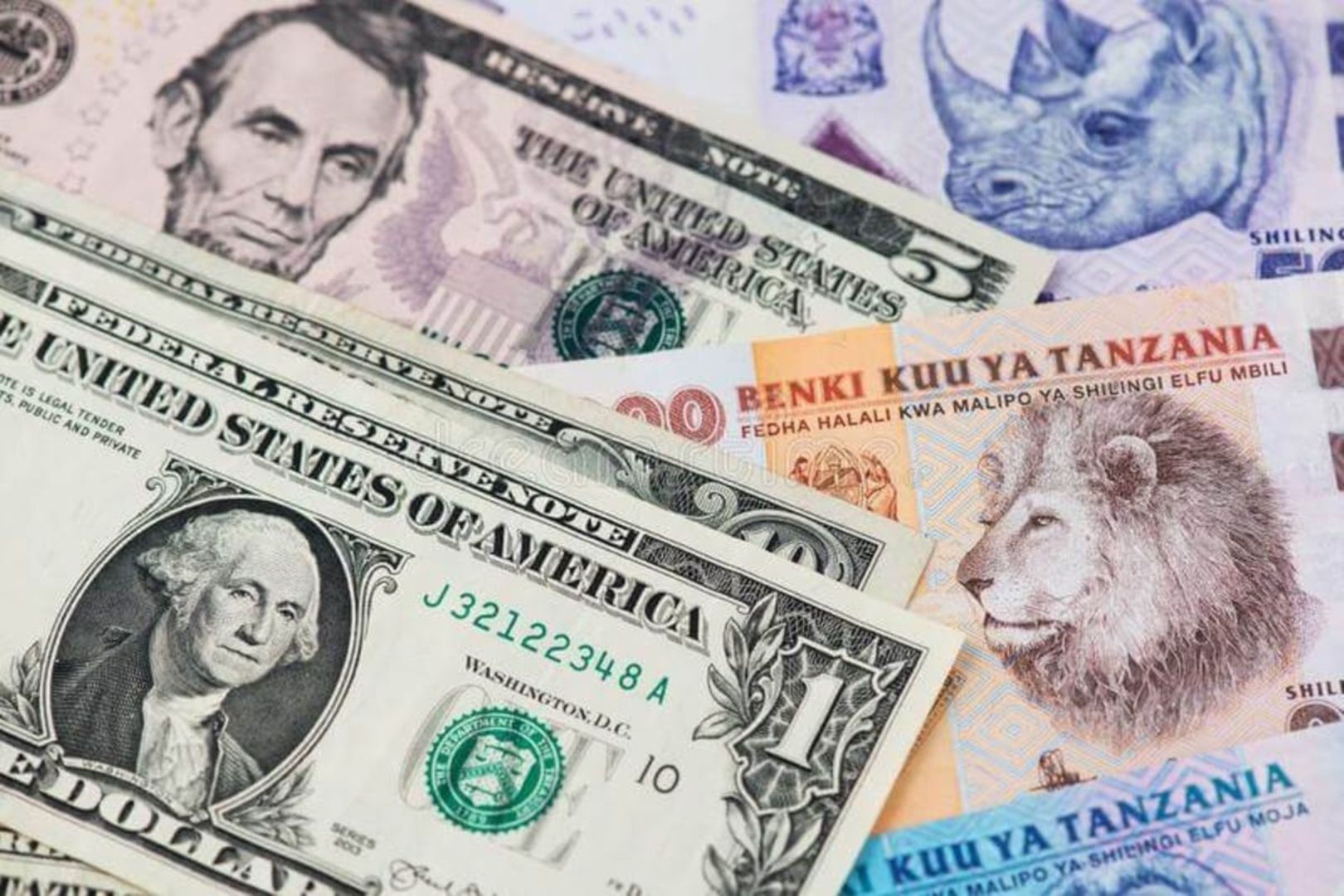Jambojet, Taifa Gas reap big in new Dar-Nairobi trade agreement

What you need to know:
- The two East African Community partners have also resolved the disputes involving aviation, tour vans, Covid-19 clearance certificates, clearance of goods at the Namanga-Kenya-Tanzania border and mutual recognition of engineers’ certificates.
Tanzania and Kenya have hammered out a bilateral trade deal cutting across the aviation and energy sectors, enabling growth of the Common Market.
In the new deal, Kenyan airline Jambojet will now be allowed to fly to destinations in Tanzania while Tanzania’s Taifa Gas has been granted permission to establish a plant in Kenya’s Export Processing Zone.
The deal comes after a series of meetings that have been going between Kenya and Tanzania since May 2021, following President Samia Suluhu’s inaugural state visit to Kenya.
The two East African Community partners have also resolved the disputes involving aviation, tour vans, Covid-19 clearance certificates, clearance of goods at the Namanga-Kenya-Tanzania border and mutual recognition of engineers’ certificates.
Johnson Weru, Kenya’s principal secretary in the Ministry of Industrialisation, Trade and Enterprise Development, told The EastAfrican this week that the teams have resolved four of the 18 outstanding issues, adding that they will meet in the second week of July “to discuss the remaining items”.
Mr Weru is co-chair of the bilateral talks. The other chair, Prof Godius Kahyarara, was recently transferred from Tanzania’s Investment Ministry to the newly established Investment, Industry and Trade Ministry.
The deal is a boom for Kenya’s low-cost airline Jambojet, a subsidiary of Kenya Airways, which recently launched cargo operations to the city of Goma in eastern Democratic Republic of Congo.
The carrier operates six De Havilland Dash 8-400 planes and currently serves local destinations from its Nairobi hub: Kisumu, Eldoret, Malindi, Lamu, and Mombasa.
However, the carrier will have to wait for a while as the two countries thrash out details of the pact.
Karanja Ndegwa, Jambojet CEO. said they are awaiting some approvals.
“We are closing some items. We will confirm once we are done,” he said.
Kenya and Tanzania were engaged in vicious trade spats during the regime of the late President John Magufuli, which almost killed cross-border trade between the two states. But the coming into power of President Samia heralded an era of reconciliation and cooperation.
Dodoma had accused Kenya of denying preferential treatment for gas products from Tanzania, but now this matter has been resolved.
Taifa Gas, formerly Mihan Gas, which is the largest liquefied petroleum gas supply company in Tanzania, now has an opportunity to establish a plant in Kenya. The company has 35 plants and storage facilities in Tanzania mainland and Zanzibar.
Taifa Gas is one of the companies founded and controlled by billionaire Rostam Aziz, who was once the largest individual shareholder of mobile operator Vodacom Tanzania before he sold his stake for more than $400 million.
Mr Aziz has interests in mining, port services, agriculture, media and an extensive real estate portfolio in Tanzania, the United Arab Emirates and Oman.
Multiple stakeholders
To arrive at the new deal, the negotiators involved multiple institutions, including the Tanzania Dairy Board, Weights and Measures Agency, Tanzania Medicines & Medical Devices Authority Home, the Veterinary Department, Tanzania Atomic Energy Commission and the Logindo and Arusha municipal councils.
Tanzania requires mandatory fumigation of wooden pallets entering the country even when they have been treated in Kenya, presenting a major sanitary and phytosanitary (SPS) challenge that had been blamed on the failure of Dodoma to ratify the bloc’s SPS Protocol.
The country has since ratified it and in March, the EAC Sectoral Council on Agriculture and Food Security commended Tanzania for the gesture and directed the Secretariat to submit the draft SPS Bill to the Council of Ministers after clearance by the Sectoral Council on Legal and Judicial Affairs.
“Some of the issues Kenya had with Tanzania were partly because Tanzania had not ratified a number of protocols that relate with trade, such as the SPS and the African Continental Free Trade Area. But now that has been done,” said PS Weru.
The Tanzania Food, Drugs and Cosmetics (Importation & Exportation of Food) Regulations, 2006, mandate that imported food be certified by a Tanzanian inspector.
“No imported food shall be removed from the customs area before it is inspected or examined, as the case may be and certified as fit for human consumption in writing by the inspector,” the regulations stipulate.
Bureaucracy hitches
In addition, each imported consignment must be accompanied by a health certificate issued by a competent authority in the country of origin. Even then, imported foods are regularly subjected to further inspections, with some importers terming it inconvenient.
“There was a problem with clearing of goods between the two countries due to bureaucracy around the Kenya Revenue Authority and the Tanzania Revenue Authority, of which the cumbersome ones were identified and resolved,” the PS said. “For instance, there is a new scanner at the border that is being used to scan goods destined for the two countries.”
Nairobi and Dodoma also resolved the longstanding dispute between Kenyan tourist van operators and the Tanzanian authorities.
“The issue of tour van operators paying Tsh7,000 has since been resolved,” said Mr Weru.
In 2019, Kenya banned Tanzanian tour vans from accessing the Masai Mara Game Reserve, arguing that Tanzania had also banned Kenyan operators from accessing the Serengeti National Park.
Tanzania then imposed fresh quality verification standards for Kenyan products.
Dodoma said it was reciprocating Kenya’s decision to impose similar conditions on goods originating from Tanzania in breach of a mutual agreement on the standards of goods traded within the region.
Engineer registration
Later, when Covid-19 broke out in the region, more disputes arose over testing and vaccination certificates.
But now, travellers will not be required to test twice for Covid-19 while in transit through the airports.
The two EAC partner states also resolved to allow engineers to work across borders.
Under Engineers Registration (Registration of Independent Consulting Engineer) Rules 2016 (Tanzania), EAC nationals are not eligible for registration as independent consulting engineers. But, after the latest agreement, this has been relaxed to allow Kenyan engineers to operate in Tanzania.
John Kalisa, CEO East African Business Council, hailed the deal noting that it has seen trade between Kenya and Tanzania significantly increase.
“With both countries showing the will and the zeal to resolve their non-tariff barriers, the two countries are likely to experience more investments from the region,” said Mr Kalisa.
Tanzania recorded a $19.6 million trade deficit with Kenya by January 2022.
Latest data from the Bank of Tanzania shows that Tanzanian exports to Kenya in the last quarter of 2020 stood at $230 million compared with $249.6 million worth of imports in the period.
For a long time, goods and services entering Tanzania from Kenya and the EAC region were subjected to numerous trade barriers compared to goods from other countries in the Southern African Development Community.
Compared with Kenya, which imposes duty on its imports, the goods from Tanzania are cheaper.





